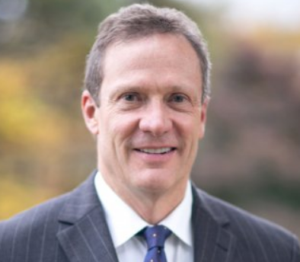
by Steve Haner
Efforts to rapidly expand our reliance on wind and solar generation for electricity, while at the same time closing baseload natural gas generation with similar haste, makes no sense economically. “The only explanation for that policy is you want to shut down the economy.”
Another voice of reason has emerged to challenge the climate alarmist orthodoxy, a Virginia voice, Professor Jason S. Johnston at the University of Virginia School of Law. He brings to the discussion the experience and analysis of a regulatory law expert and economist, distilled into a somewhat daunting 656-page book published by Cambridge University Press in August.
“Climate Rationality: From Bias to Balance” (available through Amazon here) focuses at length on the legal precautionary principle behind most climate regulatory schemes, with little or no consideration taken of either the economic costs or unintended environmental consequences. He writes in an excerpt from his introduction:
The precautionary principle says little if anything about how such costs should be weighed in designing policy. But, given the highly uncertain and unpredictable future impacts of rising atmospheric GHG concentrations and the unprecedented cost of reducing GHG emissions, any rational regulatory response to curbing human GHG emissions must surely closely scrutinize the case for decarbonization. The purpose of this book is to provide precisely such an examination…
Precautionary US climate policy has already cost lives, damaged the environment, and increased costs for the basic life necessities, such as electricity, in ways that are felt most acutely by the poorest American households.
Johnston also dissects the work of the Intergovernmental Panel on Climate Change (IPCC) and the media and scientific utterances of the National Aeronautics and Space Administration (NASA), which in an interview Tuesday he dismissed as often just propaganda. IPCC does not always honestly convey the peer-reviewed science it cites, he said, because the actual studies often draw different or more nuanced conclusions.
Others have made that point, including Steve Koonin in his recent “Unsettled.” Apparently, Johnston makes this case in more depth than previous writers, drawing this praise from another University of Virginia veteran:
“Jason S. Johnston’s Climate Rationality is the definitive indictment and takedown of subjective climate ‘authorities’ like the IPCC and the various US ‘Assessments’ of climate change. Johnston’s work is so comprehensive that he may well be the historic figure who singlehandedly kills the climate bogeyman.” Patrick J. Michaels, Past-President, American Association of State Climatologists
Does that mean Johnston disagrees there is a 97% consensus on all the “settled” climate science? “I have a chapter on that. It’s 43 percent, maybe. Depends on what question you ask.”
The big problem is the blind acceptance of IPCC and other authorities by the American judiciary when dealing with legal challenges to the regulatory efforts, such as the effort to reverse the official finding during President Barack Obama’s term that carbon dioxide is a dangerous pollutant. The so-called “Endangerment Finding” was and remains the legal kingpin to all that has followed.
Again, from his introduction:
… this point cannot be overemphasized: Federal courts have failed completely to engage in any actual serious review of whether the supposed scientific basis for a climate change regulation is as strong, and typically one-sided, as the EPA (or other agencies) say it is.
Johnston has been at UVA for ten years, after a similar post at the University of Pennsylvania. In Charlottesville he both holds an endowed chair and heads the school’s John M. Olin Program in Law and Economics. He earned his doctoral degrees in a joint law and economics program at the University of Michigan. The book was not started years back to create a textbook for a course, but to push back on the efforts he saw by the climate crisis establishment to suppress and even silence questions or debate.
At the end, like many others, he comes down as an advocate for nuclear power as the baseload electricity source of choice. One way to make it more economically viable is to end all the artificial supports and subsidies for wind and solar. If you need a dispatchable source easier to match with fluctuating wind and solar outputs, then the newer natural gas units are better choice.
His views are probably not popular with many of his peers or students, but he said the law school continues to value and defend intellectual diversity. There may be “a small number of us,” but free market and conservative opinions exist and get expressed in peace. Would it be the same if he taught in the economics department in the main university program?
Perhaps not. As to tolerance and encouragement of intellectual diversity, he said, “the university as a whole is moving towards being one of the worst places.” The law school remains a place apart.
In looking around for more information on Johnston or the book, a little Wikipedia label popped up and provided an excellent example of what exactly he seeks to fight:
Climate change includes both human-induced global warming and its large-scale impacts on weather patterns. There have been previous periods of climate change, but the current changes are more rapid than any known events in Earth’s history. (Emphasis added.)
The assertion in the final part of the final sentence is contradicted by a pile of evidence, with the climate history record a major topic of study. There have been previous periods of warming or cooling at similar and perhaps even greater rates of change. But erasing any geological record that indicates this is all just routine variation is just as important to the climate crisis myth as erasing the present-day humans who dispute the orthodoxy.

Leave a Reply
You must be logged in to post a comment.